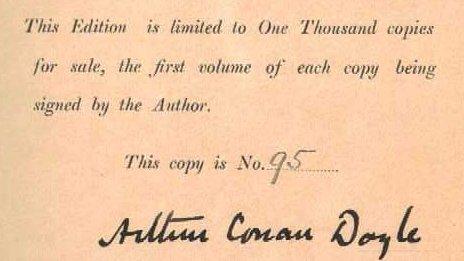Harry Potter auction: How much are signed books worth?
- Published
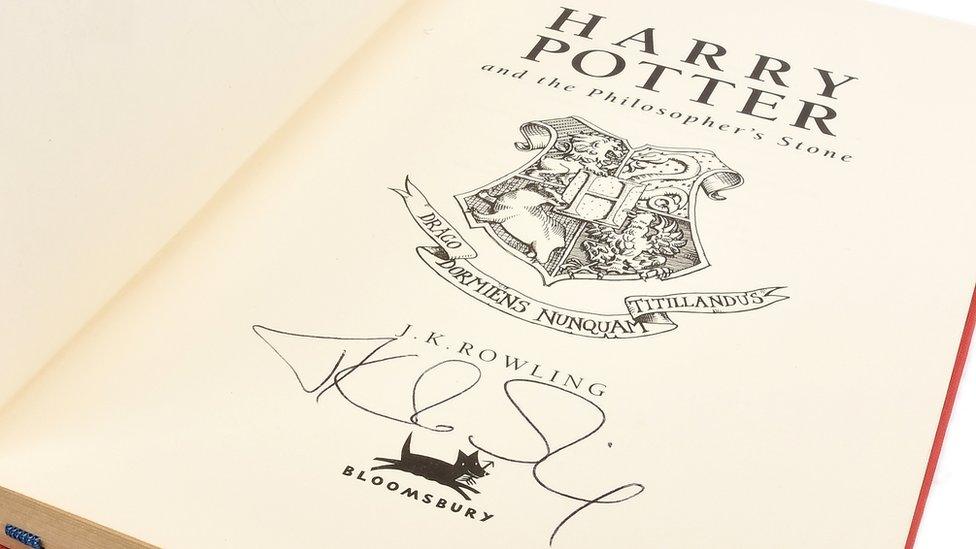
Signed Harry Potter books sell for thousands of pounds
A set of signed Harry Potter books is estimated to fetch between £9,000 and £15,000 at auction on Tuesday, but how valuable are signed books?
While visiting his parents, a writer finds a copy of one of his books in the local second-hand bookshop.
Amazingly, he finds he has already signed and inscribed it.
"To mum and dad," the inscription reads.
But even though not everyone might treasure a signed book, enough people do to make it big business for both dealers and collectors alike.
"It's about the author touching the book," says Pom Harrington, a book dealer and collector of inscribed Roald Dahl books.
"It's knowing they have held it in their hands, that they have blessed it."
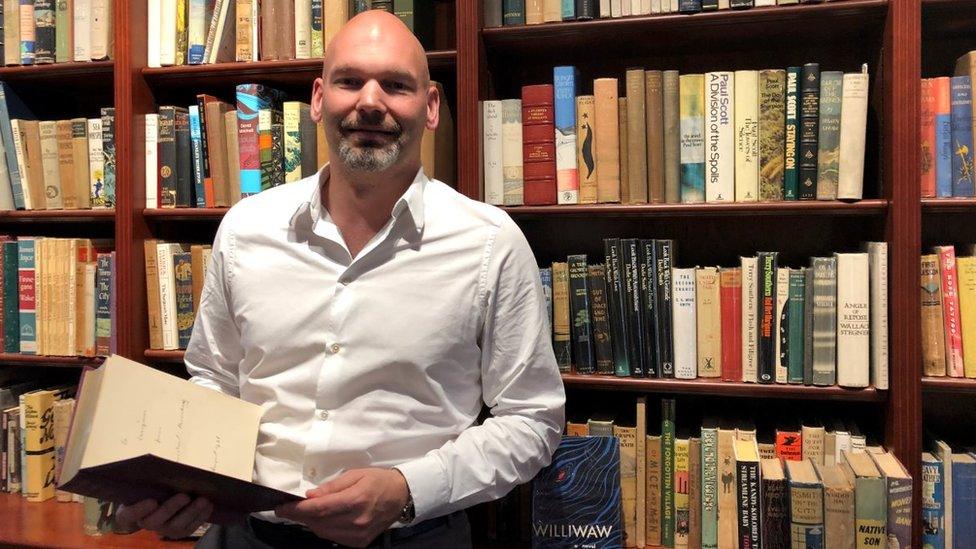
Pom Harrington sells rare books in central London
There are four categories of signed book according to Mr Harrington, owner of Peter Harrington books in central London.
First, there is simply the author's autograph.
Then there is the inscribed, which is the signature and a "best wishes"-style generic message.
This is more valuable as it has more of the author's own handwriting, which is not only more desirable for the collector, but also means there is more to compare when verifying authenticity.
"Cormac McCarthy for example has quite a scrawled signature so having the message as well means you can be more reliably certain it is his," Mr Harrington says.
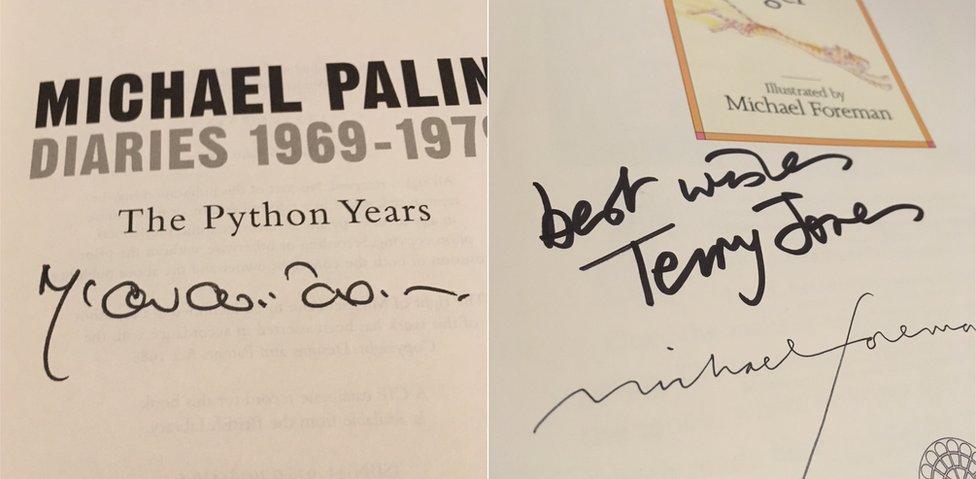
Categories of signed books include simple autographs as demonstrated by Michael Palin or generic inscriptions such as that of fellow Monty Python member Terry Jones
Above inscribed is the presentation copy, which is the one sent out by the author to family and friends with a personalised message written inside.
Winston Churchill sent a lot of presentation copies of his books - including to Neville Chamberlain - which are much sought after by collectors.
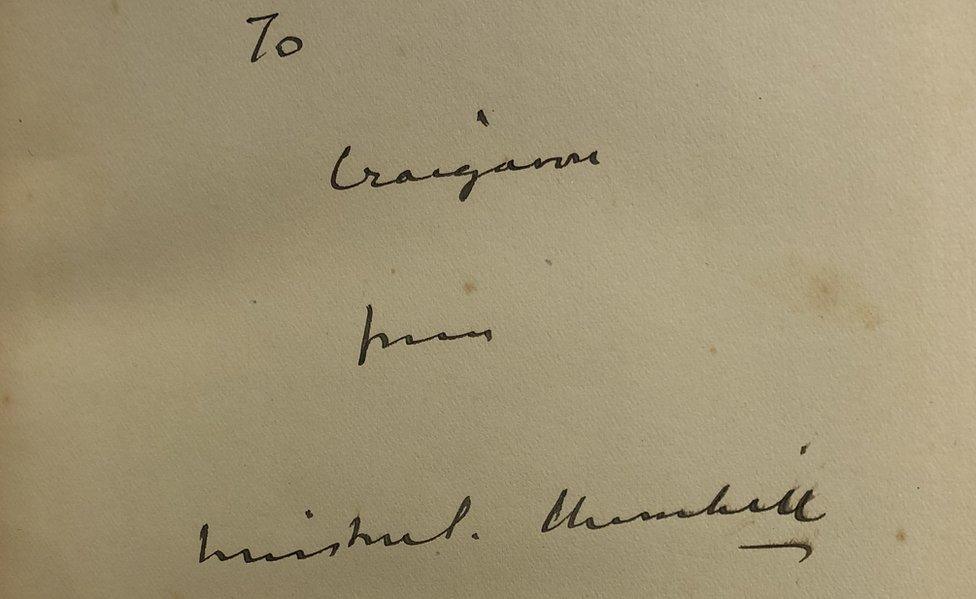
Winston Churchill was a prolific signer of his work
One presentation copy to pass through Mr Harrington's shop was a Frankenstein signed by Mary Shelley to Lord Byron, who was famously part of the party where she first created the story.
It sold for more than £300,000.
Similarly, a copy of Tale of Two Cities signed by Charles Dickens to George Eliot went for £200,000.
But there is a higher grade even than that: the "unicorn", as Mr Harrington puts it.
That is the book signed to the person to whom it is also dedicated.
Ernest Hemingway's For Whom the Bell Tolls provides a good idea of the difference in prices.
A simple signed copy would cost about £7,000, inscribed £10,000 and a presentation copy up to £25,000.
But a copy signed to Martha Gellhorn, to whom the book is dedicated, would sell for £200,000.

A short history of signed books
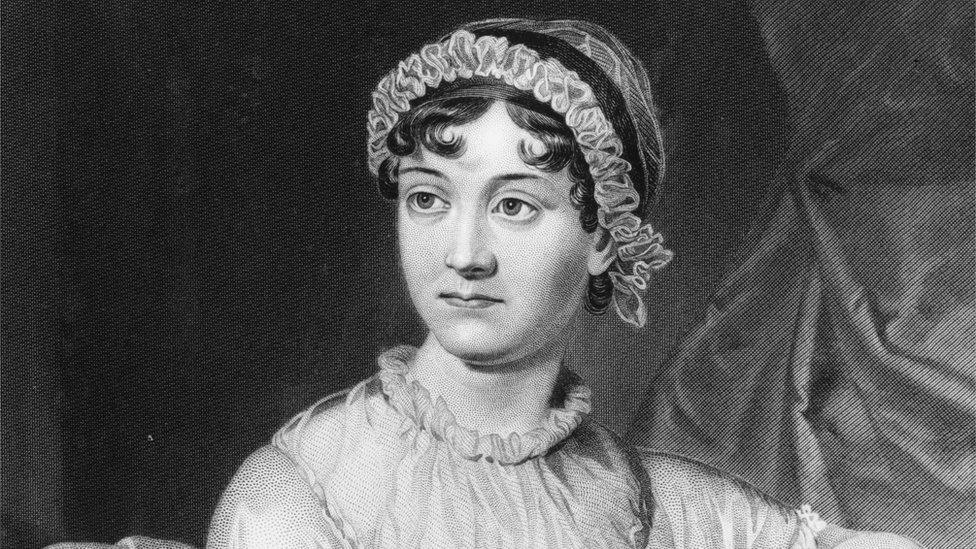
There are no known signed copies of Jane Austen
Signed books are a relatively recent phenomenon.
It was not until the end of the 18th Century that authors started to sign their work, but even then inscriptions were more commonly written by secretaries rather than writers themselves.
For example, there are no signed copies of Jane Austen's books but there are 13 presentation copies of Emma, which are highly cherished (while a first edition of Pride and Prejudice can be bought for about £65,000).
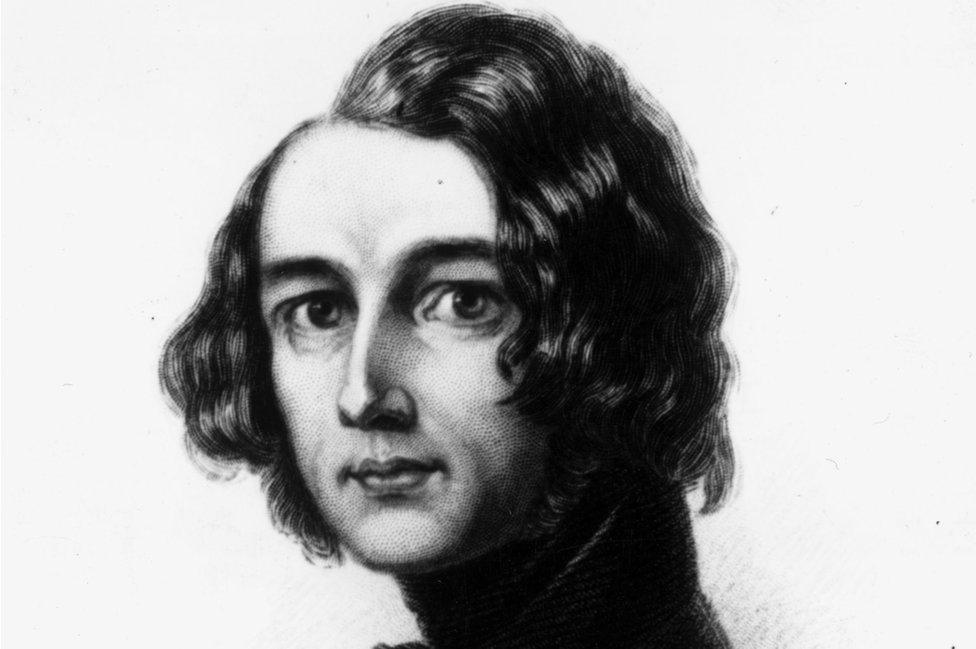
Charles Dickens was one of the first authors to go on national book tours
By the middle of the 19th Century, signing became a common occurrence.
Charles Dickens, a "superstar even in his day", was a big proponent of signed books, Mr Harrington says.
"He would tour the country reading his works and signing copies for people.
"He was undoubtedly one of the first to do book tours."

It has to be the right book though.
Take HG Wells, for example.
A signed copy of War of the Worlds could fetch between £25,000 and £30,000.
But a signed copy of one of his lesser-known books "I would not give you £200 for", Mr Harrington says.
"It has to be the book they are best known and loved for."
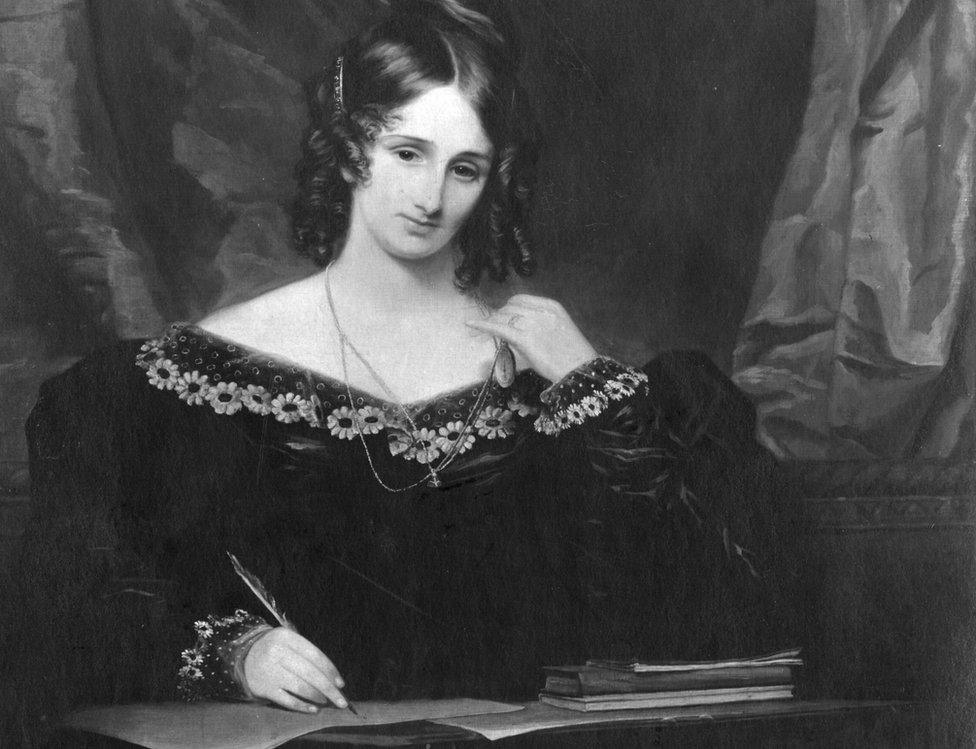
Mary Shelley devised the idea for Frankenstein in a story-telling competition at a party with friends including her husband Percy Shelley and Lord Byron
The quality of the book also matters. "You want to find the book in the same condition as when it was born", adds Mr Harrington.
And being a first edition helps.
The set of Harry Potters being auctioned by Vectis in Thornaby, external comprises seven signed deluxe editions.
They belong to Ged Quinn, an electrician from Farnborough who bought them 10 years ago as an investment.
"I got one from somewhere and then, as any collector knows, I wanted to get the complete set," he says.
"I bought them to sell... It's not like my collection of Star Wars figures. I would struggle to be parted from them."
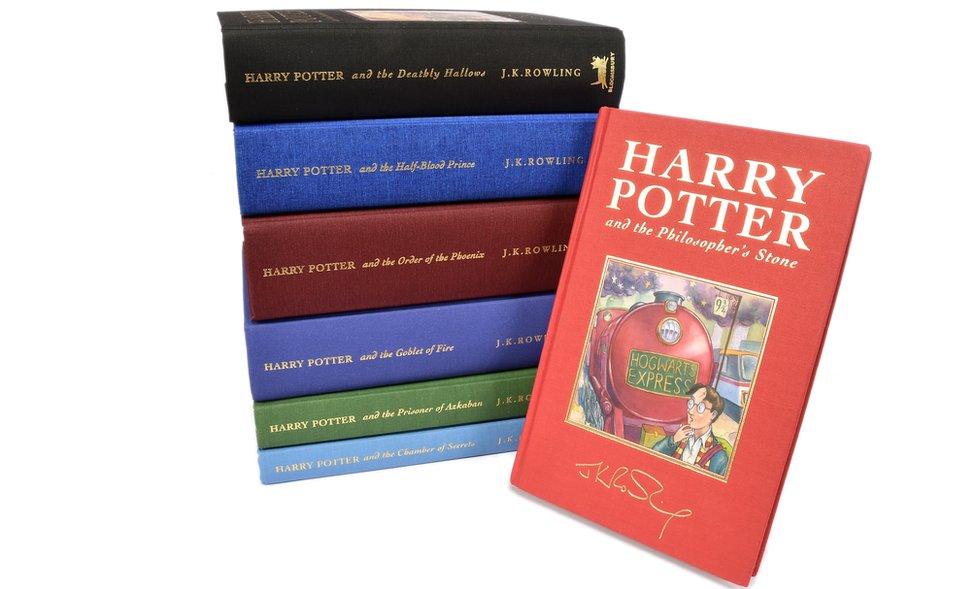
The set of deluxe signed Harry Potter books has an estimate of between £9,000 and £15,000
He wouldn't say exactly how much he paid for the books - but they were not cheap.
"If you want this stuff you have got to pay the money," he says.
"Everyone knows about the value of these things, I do not think there are any lucky finds any more."
Nigel French, of signed book specialists Cole's in Bicester, said some collectors "acquire an awful lot of books" in the hope of finding the next Harry Potter.
But many more just buy books because they feel a strong attachment to the work or its author.
"It creates a connection between you and (your hero)," he says.
"That's quite a lovely thing to have. In some cases they will be valuable."
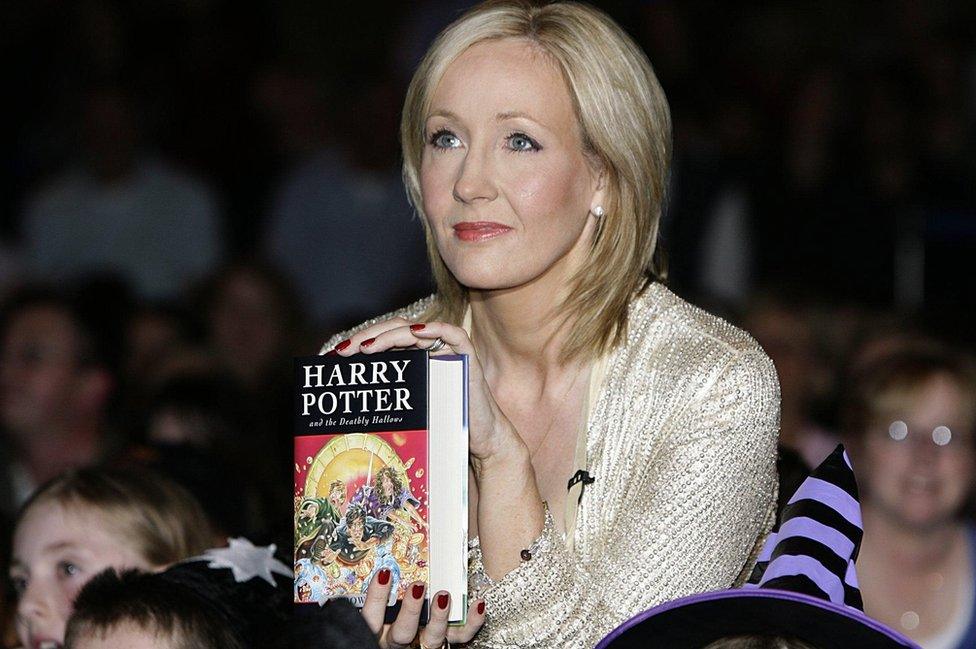
JK Rowling mainly signs books for charities
When it comes to Harry Potter, the main reason the books are so valuable is because so many people feel so strongly attached to them.
Their author JK Rowling "understands the power of her signature" according to Mr Harrington.
She rarely does signings now, other than for charities.
She declined to contribute to this article but one author who was more than happy to talk about his stance on signing was Bryan Talbot, who recently presented a signed copy, external of his book Alice in Sunderland to the Duke and Duchess of Cambridge when they visited Wearside.
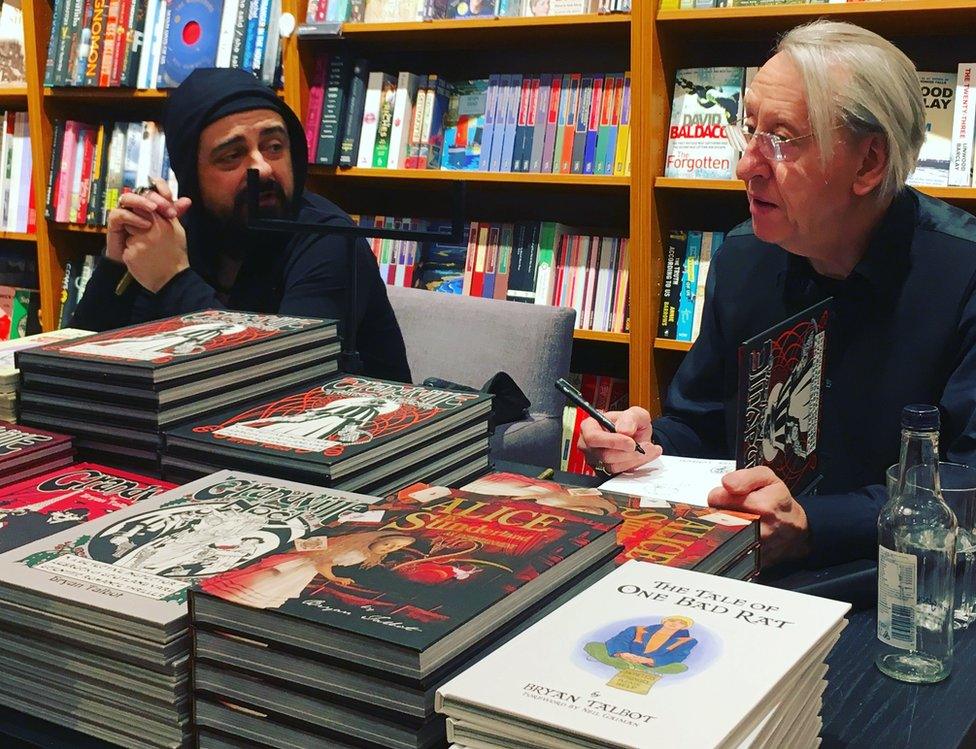
Bryan Talbot (right) will often draw a sketch when he signs a book
The award-winning graphic novelist not only signs books for his fans but usually does a sketch as well.
"It's a way of saying thank you to them for their support," he says.
He remembers after one comic convention meeting a fan in a hotel, as he made his way to dinner.
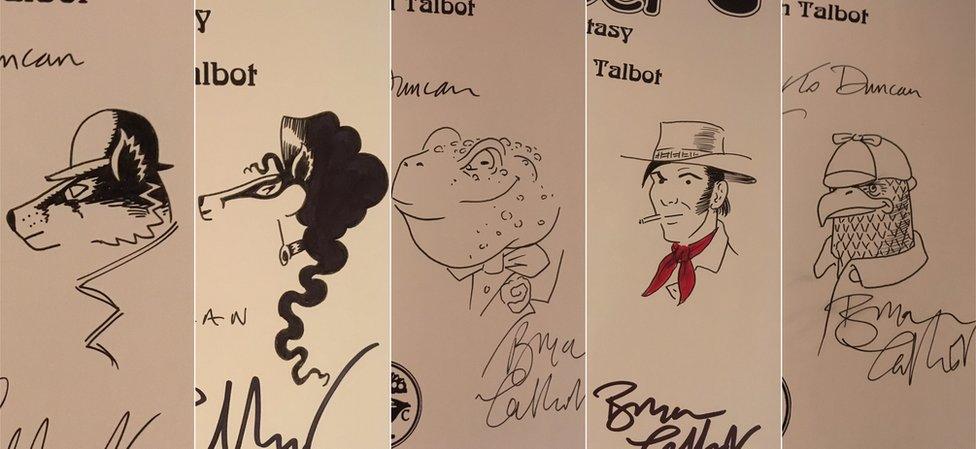
For his Grandville series, Bryan Talbot drew a different sketch in each book
"The fan asked me to sign a book so I did, but then a queue started forming. I was probably there for about two hours."
His wife Mary, who has written four books with her husband including Dotter of Her Father's Eyes, the first ever graphic novel to win a Costa award, said she stopped going to conventions with him after that.
She too is happy to sign books, adding: "It's still just very nice to be asked."
Nice for the authors and nice for the fan, but buying signed books should be done for the love of it rather than for the hope of financial gain, says Mr Harrington.
"Books can be an investment but unless you really know the market, it is a dangerous thing to rely on.
"If you love it, when you come to sell it someone else will also feel that way about it."
- Published15 June 2017
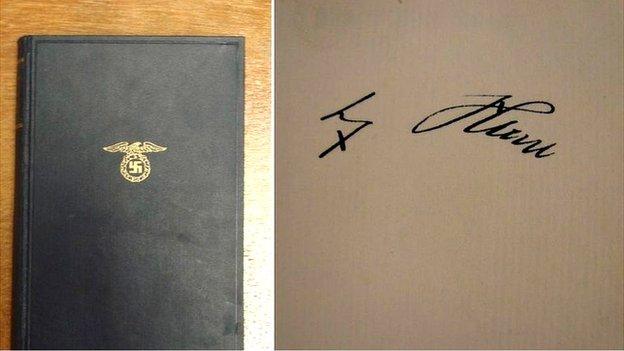
- Published11 December 2012
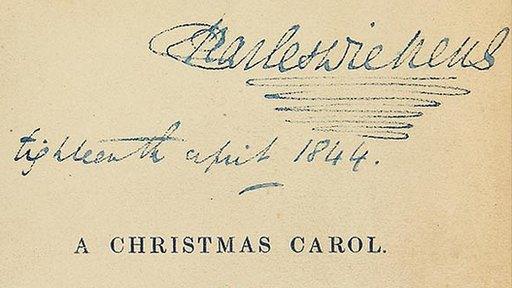
- Published18 January 2012
